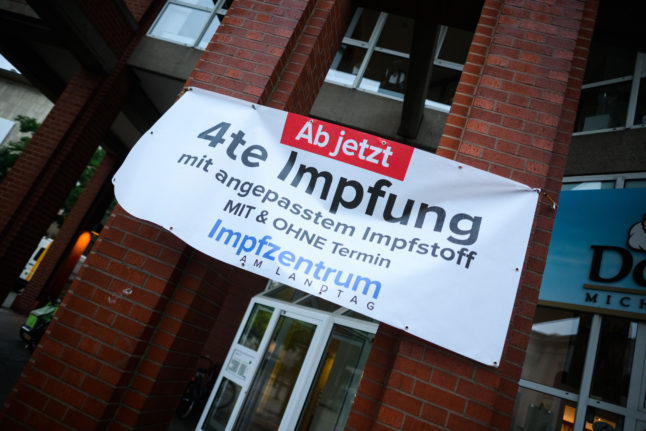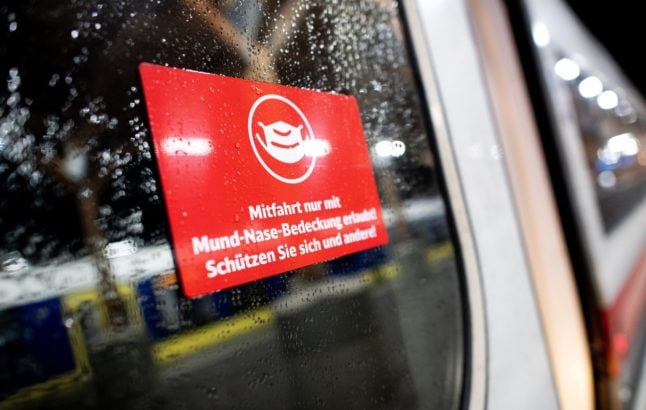What are the Omicron vaccines and how are they different?
In the latest phase of the Covid pandemic, the Omicron variant has been by far the most dominant variant worldwide. Though Omicron is believed to cause milder courses of illness than preceding variants like Delta, it’s known for being highly transmissible and adept at evading the body’s immune responses.
In September, three Omicron vaccines received EU-wide approval: two vaccines from BioNTech and Moderna adapted to the BA.1 sub-variant, and another Omicron booster from BioNTech to protect against the dominant BA.4 and BA.5 sub-variants.
Like their previous Covid vaccines, the latest from BioNTech and Moderna are mRNA vaccines, a recently developed vaccine type that teaches our bodies to produce an immune response when exposed a molecule known as a messenger RNA. The difference is that these vaccines are what’s known as “bivalent”, meaning they contain both a component of the original strain of Covid alongside a component of the BA.1, BA.4 and BA.5 Omicron subtypes respectively.
READ ALSO: EU approves new dual-strain Covid vaccines in time for autumn booster campaigns
That means they’re designed to both offer protection against Covid caused by previous variants as well as the new Omicron subtypes.
As with other Covid vaccines, the Omicron vaccines are only believed to offer greater protection from infection for a short time after getting the jab. However, studies suggest that they continue to offer good protection against severe courses of illness.
Where are the jabs being rolled out in Germany?
So far, only a handful of northern German states are offering the new BA.4 and BA.5 vaccine, though GPs have been able to order doses of Moderna’s BA.1 vaccine for a few weeks now.
One of the first states offering the latest Pfizer/BioNTech vaccine is Berlin, where both doctors’ practices and the Ring Center Vaccination Centre in Friedrichshain have been providing Omicron vaccinations since Tuesday.
A list of clinics with doses of the specially adapted vaccines can be found here (in German). Alternatively, people can head to the vaccination clinic at the Ring Center between 9am and 7:30pm daily, with or without an appointment.
In Lower Saxony, GPs are currently able to obtain up to 240 doses of the new BA.4/BA.5 vaccine from Pfizer/BioNTech. Vaccination centres such as the Impfzentrum am Landtag in Hannover are also offering the new Pfizer and Moderna vaccines.
Around 145 mobile vaccination teams are also expected to receive doses of the new vaccine over the course of the week, meaning people who aren’t able to get a jab at their doctors’ surgery or vaccination centre yet can look out for pop-up clinics in places like shopping malls and on the high street.
In Bremen, the latest BA.4/BA.5 adapted vaccine from Pfizer has been used as the standard booster shot in a number of vaccination centres since Thursday. People who are interested in the Omicron vaccine can get it at the vaccination centre Am Brill, in the vaccination centres in Bremen-Nord, Bremen-Ost and at the centre in Bremerhaven. Mobile vaccination teams have also received doses of the new vaccine.
Due to the current high level of demand, people are being advised to book an appointment ahead of time at www.impfzentrum.bremen.de.
Doses of the Pfizer/BioNTech Omicron vaccine are expected to be rolled out in other German states in the coming weeks.
Are the new vaccines recommended for everyone?
On September 20th, Germany’s Standing Vaccines Commission (STIKO) updated its guidance to recommend that the latest Omicron vaccines are used when doctors are giving out booster jabs.
That means that anyone who hasn’t had a third dose of Covid vaccine should soon be able to get an Omicron booster as standard.
However, STIKO currently only recommends second boosters (or fourth jabs) for certain groups who are at risk of severe courses of Covid: people over the age of 60, nursing home residents, staff at care homes and hospitals and people with existing immune system deficiencies.
For this group, the fourth dose should only be administered more than six months after the third dose, according to STIKO. This can be reduced to four months in exception circumstances.
People who don’t fall into any of these categories may still be able to get a dose of one of the newest Omicron vaccines after a consultation with their doctor.
READ ALSO: Can anyone in Germany get a second Covid booster jab?



 Please whitelist us to continue reading.
Please whitelist us to continue reading.
Member comments